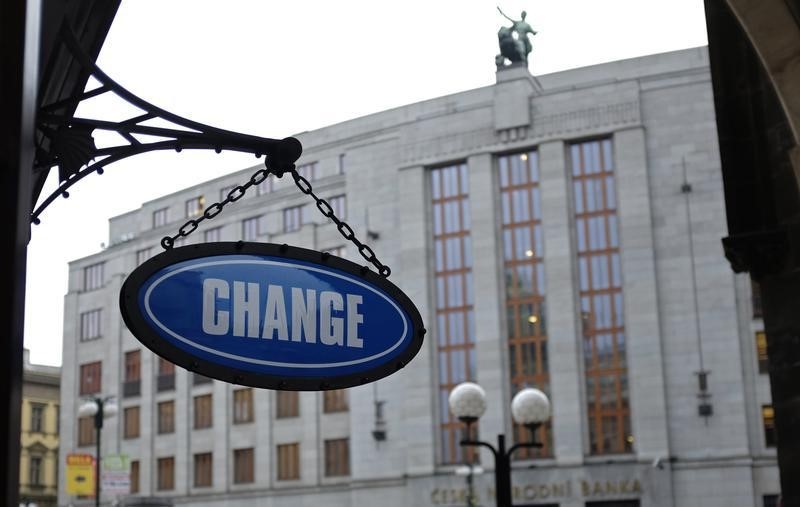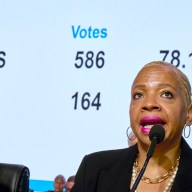By Jan Lopatka
PRAGUE (Reuters) – Czech wage growth will accelerate into next year, pushing up prices and allowing the currency to be unpegged from the euro, a new central bank board member said in an interview. Vojtech Benda said he saw no reason to doubt the board’s intention to start returning to standard policy around mid-2017 although the country was still importing deflationary pressures and had to watch European Central Bank policy. “So far I am saying (exit in) 2017, with the greatest probability around the middle of the next year. But that will also depend on developments in the euro zone,” he said in his first policy remarks since taking office on July 1. “ECB policy setting is not making it easier for us.”
The bank has used a weakened exchange rate since November 2013 to lift prices, keeping the crown currency on the weak side of 27 per euro, buying 20.2 billion euros in the market since then to keep monetary conditions loose. Benda said he would be ready to move the exchange rate to a weaker level in the event of strong anti-inflationary pressure, but added he did not see this as an expected scenario.
He said he would prefer such a move to cutting interest rates to negative territory, which the bank discussed as an option in the past months, but did not return to at the June meeting.
Benda said he expected the bank to slightly cut its 3.4 percent growth forecast for 2017 owing to weaker euro zone growth. Price pressures will not warrant quick policy tightening but inflation will still pick up to the 2 percent target next year, he said. “It is very likely that the effects of low commodity prices will wane and cease to be an anti-inflationary factor in the first half of the next year,” he said.
“The key for us is to follow wage development. So far it has been on the swift side relative to forecast, and it is very likely it will accelerate during next year.”
He said Britain’s decision to leave the EU was a hit to sentiment, but it was impossible to quantify it at the moment.
Benda, 41, worked at the central bank’s monetary department, ING and BH Securities before becoming an adviser to central bank board member, and now governor, Jiri Rusnok in 2014. The interview was conducted on Friday but embargoed past the release of the bank’s June 30 meeting minutes on Tuesday. SUDDEN EXIT
The average wage rose by nominal 4.4 percent in the first quarter and the government has approved 5-10 percent wage hikes in the public sector next year.
Benda said he preferred a sudden exit from the currency floor rather than any kind of gradual exit that would use a corridor for the exchange rate.
He said the bank would then need some time to see how much the exchange rate moves, and whether the bank would need to step in to prevent large swings. That would show how quickly interest rates could be tightened from the current 0.05 percent after the end of the currency peg. “I have the idea that the exchange rate move will not be so large that the central bank has to step in significantly, and that there will also be room for raising interest rates, although probably not in the extent that has been published in the bank’s current model forecast,” he said. The bank’s outlook sees a rise in three-month interbank market rates to 1.4 percent at end-2017 from 0.29 percent now.
(Editing by Robin Pomeroy)
New Czech central banker sees wage growth enabling end of currency floor next year

By Jan Lopatka
















